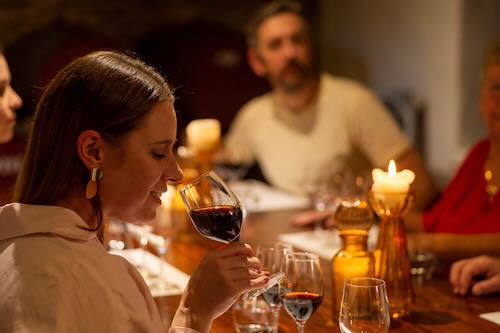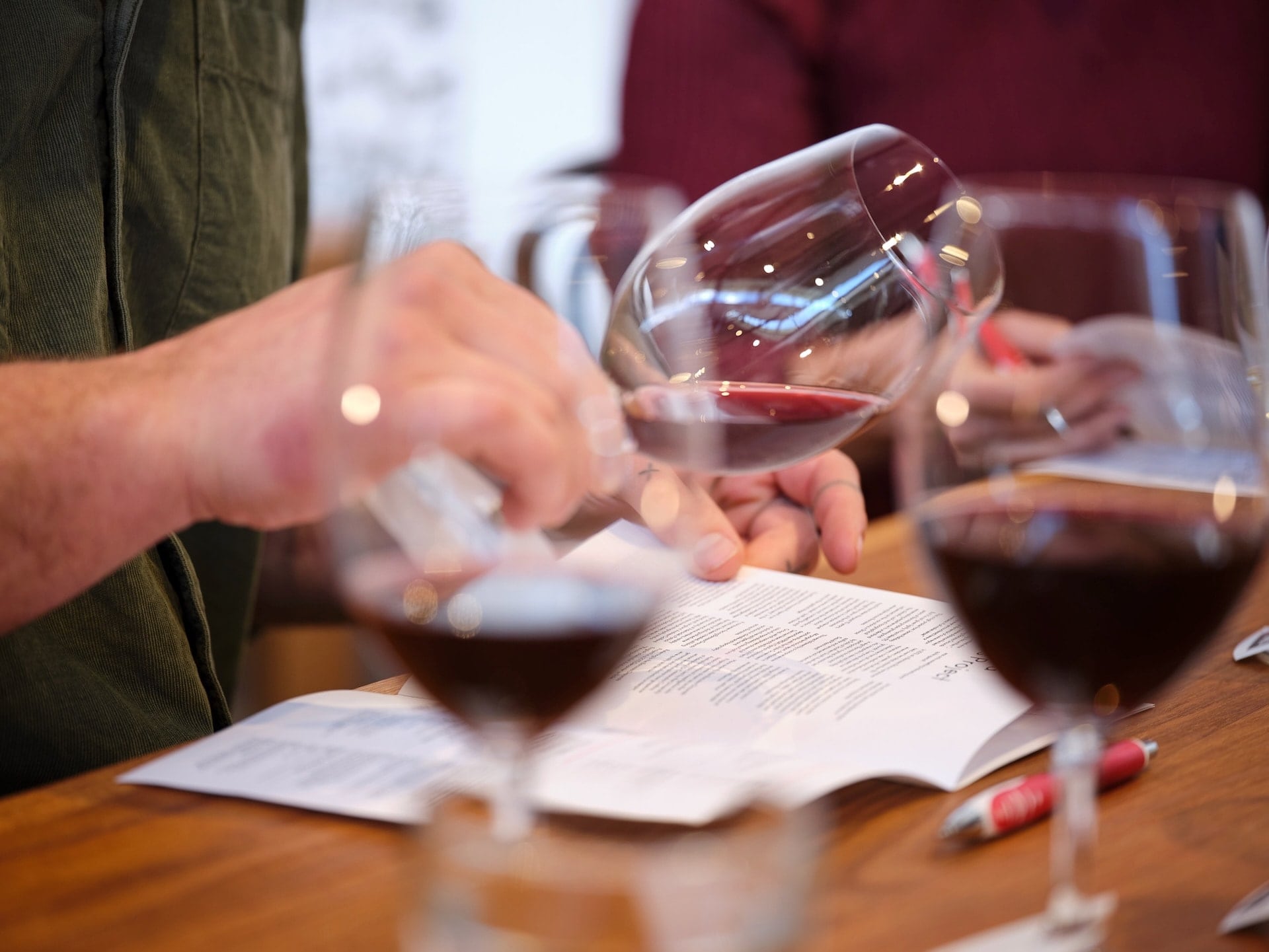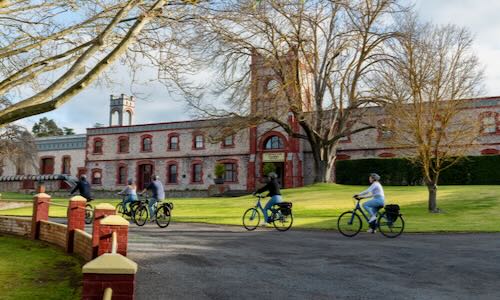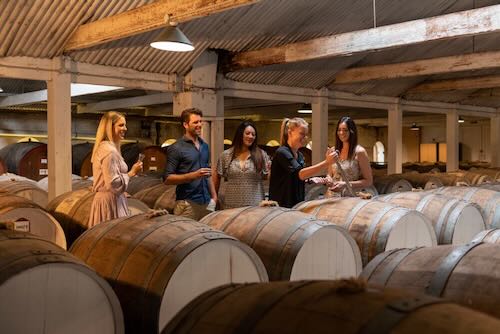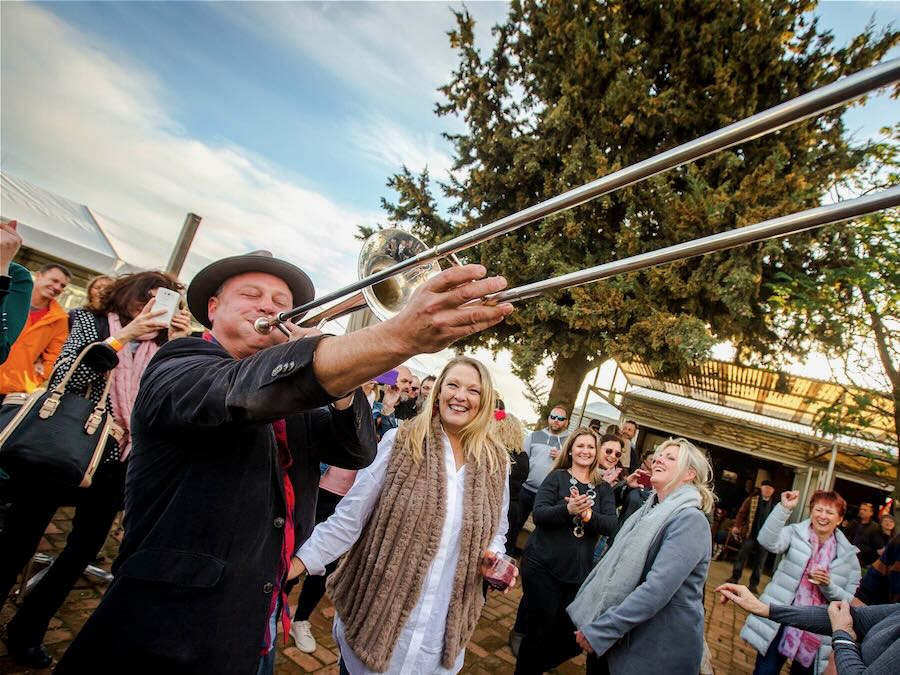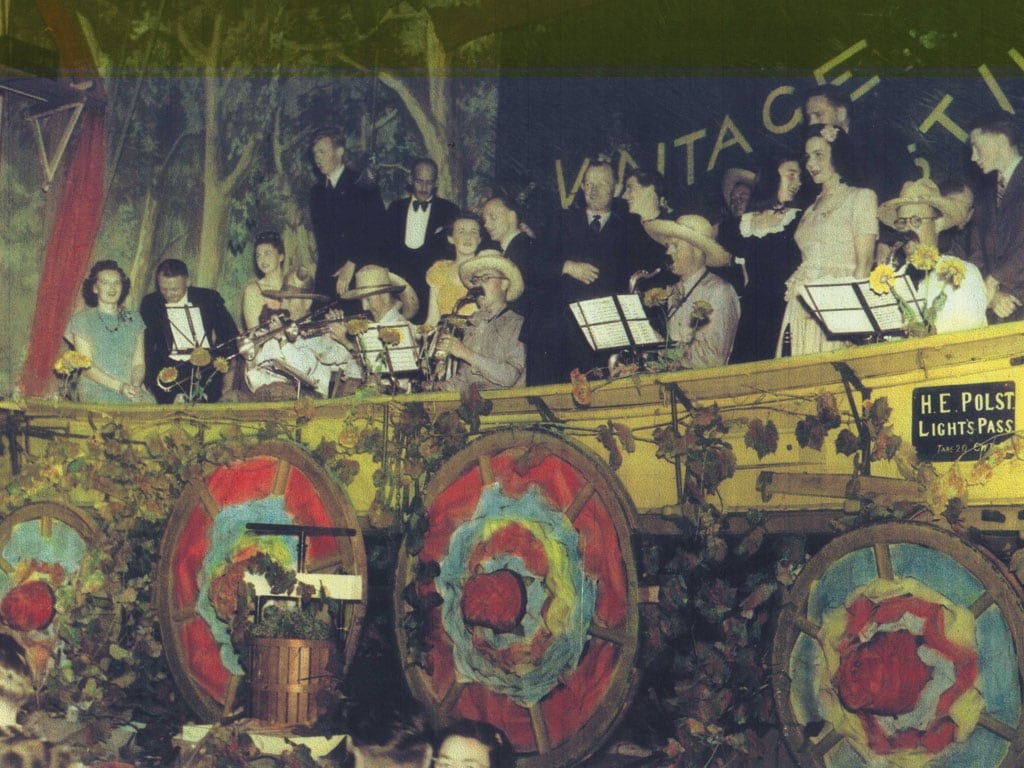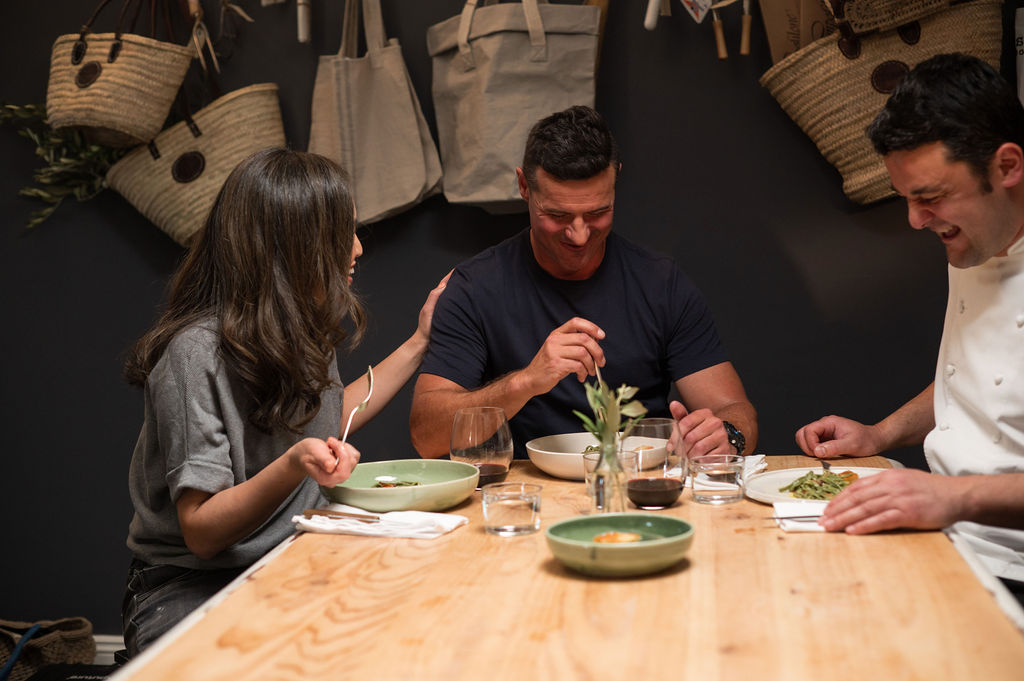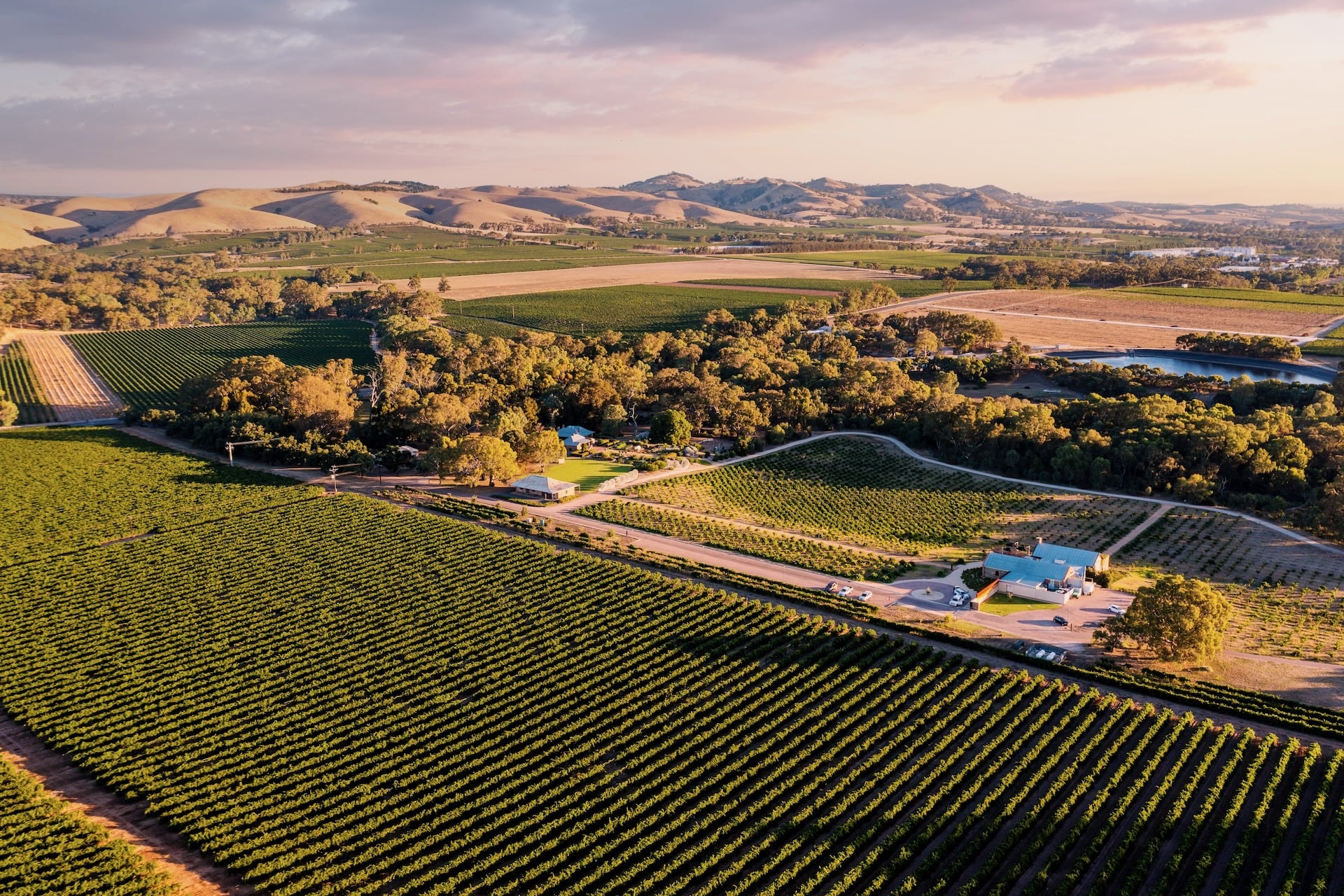Barossa’s seasons each bring their own flavour – Spring kicks things off with a buzz of fresh energy – vines waking up, wildflowers bursting to life, and the promise of something new in every breeze. Summer brings the hustle, with sun-soaked days ripening grapes and cellar doors buzzing as the countdown to harvest begins. Autumn turns the volume down, swapping golden light for golden leaves – a time for long lunches, sharing stories, and toasting the season’s bounty. By winter, it’s all about slowing down, with misty mornings, crackling fires, and the perfect excuse to cosy up with a glass of something special.

Spring
September, October & November
Spring in the Barossa is all about fresh vibes and bright sights. As the vines stretch awake and blossoms pop in pinks, whites, and reds, the region turns into a sensory playground. Think new vintage wines, long lunches under the sun, and scenic views that just won’t quit.
Local tip: Layers are your best friend – pack for sunny days and cool nights.
Weather: Daytime: 17°C–24°C (63°F–75°F) | Nights: 6°C–10°C (43°F–50°F)
What’s happening:
- Early spring: Vines shake off their winter snooze with budburst.
- Blossoms everywhere, from fruit trees to canola paddocks bursting with yellow.
- Late spring: Bright green leaves and tendrils go wild as the vines thrive.
- Perfect weather for lazy alfresco lunches and soaking up the sunshine.
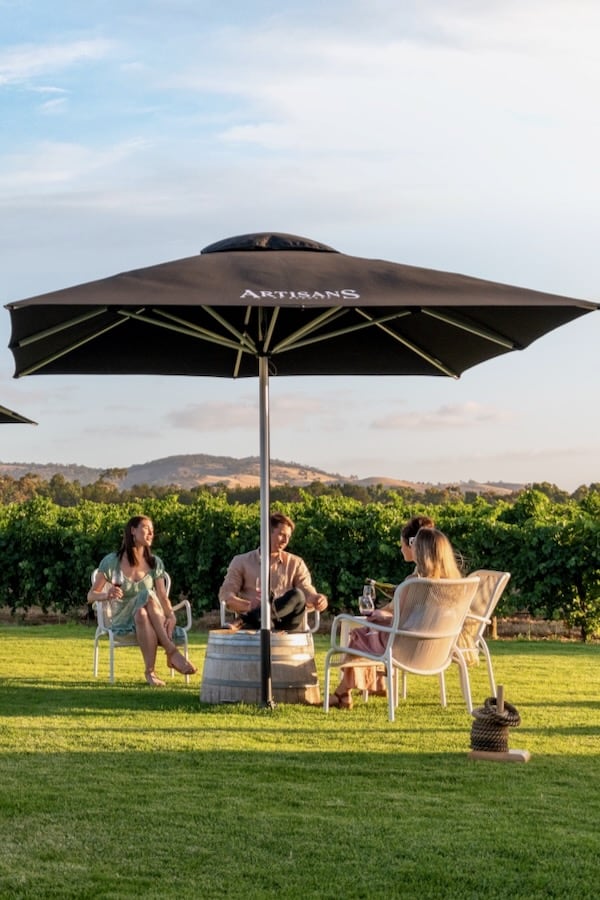
Summer
December, January & February
Summer in Barossa hums with excitement as the vines hit their stride and the countdown to vintage begins. Long, golden days invite you to explore rolling vineyards, dive into al fresco dining, or uncover the region’s artisanal gems. It’s a time when winemaking magic comes to life and the energy of the season is everywhere.
Local tip: Typically it is hot, but pack a long-sleeved item for cool evenings.
Weather: Daytime: 26°C–29°C (79°F–84°F), with hot days of 30°C–36°C (86°F–97°F) | Nights: 12°C–14°C (54°F–57°F)
What’s happening:
- Vines boast dense green canopies as grapes ripen.
- Paddocks shift from green to golden, with grain harvest wrapping up by Christmas.
- Stone fruits ripen in the orchards.
- Grape harvest kicks off – watch for hand-picking, tractors, and the buzz of wineries.
- Celebrate local traditions, from the Angaston Show to the Declaration of Vintage.
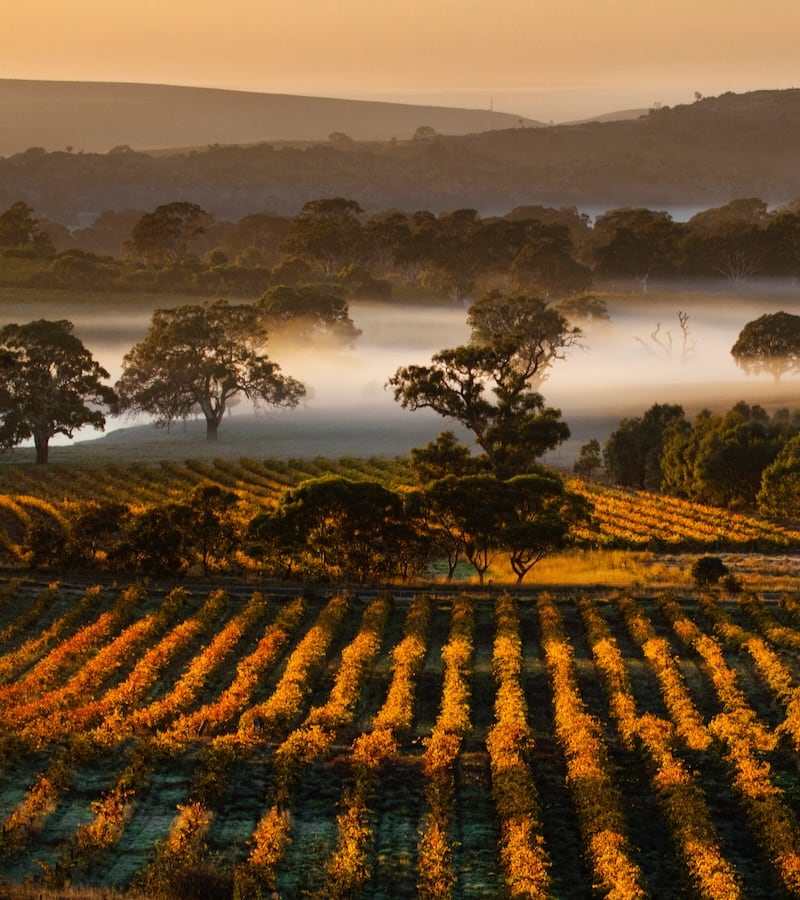
Autumn
March, April & May
Autumn in Barossa is pure charm. The vines turn shades of gold and orange as the last grapes are picked, while the hills come alive with fresh greens after the first rains. Crisp air and shorter days make it perfect for countryside walks or winding down by a cosy fire with a glass of wine in hand.
Local tip: Warm days can quickly turn chilly once the sun sets, so pack layers to keep comfortable.
Weather: Daytime: 17°C–26°C (63°F–79°F), with occasional heat spikes | Nights: 7°C–12°C (45°F–54°F)
What’s happening:
- Early autumn: The grape harvest is in full swing.
- Leaves turn golden as cooler weather arrives, and the first rains refresh the landscape.
- By mid to late autumn, the vineyards are a vibrant tapestry of autumn colours.
- Local events like the Tanunda Show and the Barossa Vintage Festival bring the community together.
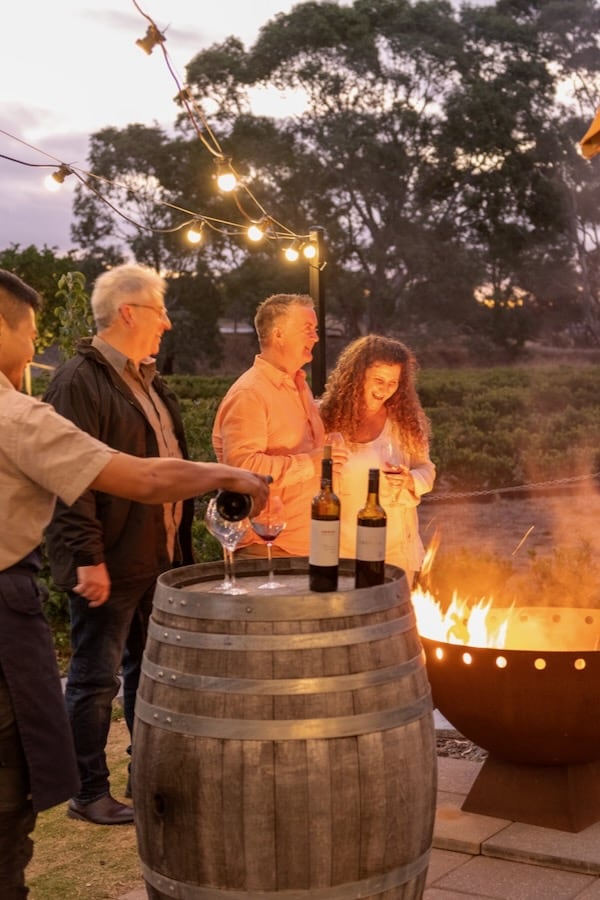
Winter
June, July & August
Winter in Barossa brings a quieter charm, with cellar doors glowing from crackling fires and rich reds ready to warm your soul. Bare vines stand in their winter rest, pruned with care for the next season, while the landscape transforms with green paddocks and olive harvests.
Local tip: Boots and a scarf are your besties.
Weather: Daytime: 12°C–16°C (54°F–61°F) | Nights: 3°C–6°C (37°F–43°F)
What’s happening:
- Fires crackling in homes, restaurants, and cellar doors.
- Vineyards lie dormant, with pruning in progress.
- Olives harvested for oil or pickling.
- Bright green cereal crops sway in the breeze.


